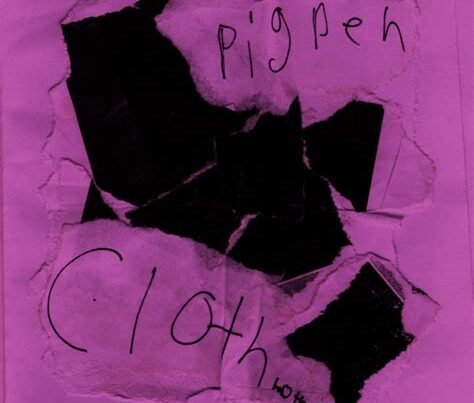The conclusion of our trip through The Cadaver Tomb is mesmerizing, an odyssey through uncharted territory that will make your jaw ache from being agape.
Release date: March 19, 2021 | Independent | Facebook | Bandcamp
Please do read my review of The Cadaver Tomb Pt. 1, because I’m going to fly through the pleasantries and introductions here and go straight into how Poly-Math are set to be one of the most interesting bands out right now… again.
Like, holy shit, man. Weeks later, as promised, Poly-Math have delivered the second of their quarantine albums, and let me just say that if Pt. 1 is an appetizer, designed to whet an appetite and program the palate to the taste it’s about to indulge in, then Pt. 2 is definitely the seven-course meal. Or rather eight-course, because there’s eight tracks on this one. I admire these two albums like the skeleton on the cover art, chalk white and fragmented, enamored by a marbled heart held high in its hand.
Every sonic theme and newly introduced element from Pt. 1 sees a more confident and center-stage application here, as if to double down on the experimentation. More upfront vocals where there were none before on Poly-Math‘s music; more electronic influence when that was a sparse, atmospheric afterthought of sorts; and more reinventing, the band transmogrifying themselves into something unseen before, but not entirely unknown.
The discordance previously found throughout their history makes a return in the title track, an altered continuation of the first album’s title track. Instead of a hurried clock, we get glitched and angled guitar yelps, perhaps signaling we’re deep inside this mechanized tomb the first album ceremoniously led us into. “Tear Down the Signs” indulges with some more solid execution sympathetic to my brain from being a fan of The Mars Volta for 15 years. Still, that vague, if flattering, comparison does no justice to this track – strong rhythms and ghostly vocals (from Emma Larcombe of For The Love Of Pipes, who featured on Pt. 1) give way to eclectic, smoother guitar, vibrating bass, and anxious synths. It sounds like a mental remodeling, demolishing dilapidation and razing antiquated processes in order to make way for a new, burgeoning construct; a metaphor for the band’s new direction, now that I think of it.
Speaking of guest singers: Larcombe also features on two other tracks, including the single “Doublethink”, a fiercely strong showing that the band was smart to lead with. Pristine melodies, alluring and subdued vocals – it all plays to the greater pulse of the track that acts as a window into the rest of the album. Aisling Whiting (Sang Froid) appears on “Sentire”, commanding more of a lilt that’s further in the foreground of the track. Her voice seems to orchestrate the soundscape of the song, strums of the guitar linked with her staccato presentation. Nothing is jagged, everything brushes on past your silhouette in the most magnificent, decadent way.
My favorite though, “Trial by Nature”, is bombastic with a catchy chorus and vocals provided by none other than Tobias Smith of Death and the Penguin. I was a big fan of their debut album when I reviewed it in 2018, so it was pleasant to hear him for that reason alone, but he fits so nicely here against the prickly avant-pop background Poly-Math have set him to. It again plays to my sense of comfort and awareness throughout The Cadaver Tomb experience – I am flanked on all sides by things different, yet unthreatening, and here I find Tobias’ voice, bold, calling out to me like an old, reassuring friend.
If absolutely nothing else, the Poly-Math pals have proven one thing nearly objectively: their ability to sequence and pace an album (or two). Everything I’ve said up until this point – including the entirety of my Pt. 1 review – shows that their work is in service to a greater feeling or tone, one maximized by going minimal, showing expertise and familiarity in their craft by delving into new territory. The Cadaver Tomb as a whole is a revelation of self brought on by great challenge and adversity, channeling true potential into a Super Saiyan level I was woefully unaware of, but all the more thankful to discover.
There’s gambles and then there’s this, an entirely new tier of risk that yields great rewards the likes of which are rarely seen – a jackpot cashout on your last dollar if you will. Poly-Math have proven to be ridiculously coherent across multiple disciplines and genre sandboxes now, and it’s with that knowledge and skill they can go forth from The Cadaver Tomb, ascended, into truly uncharted territory if they want. I am in awe. As a fan, my expectations were high, and yet they were still totally atomized by the radiance delivered on these two albums. Other bands would do well to study the elegance and nuance with which the quartet pulled this off.






